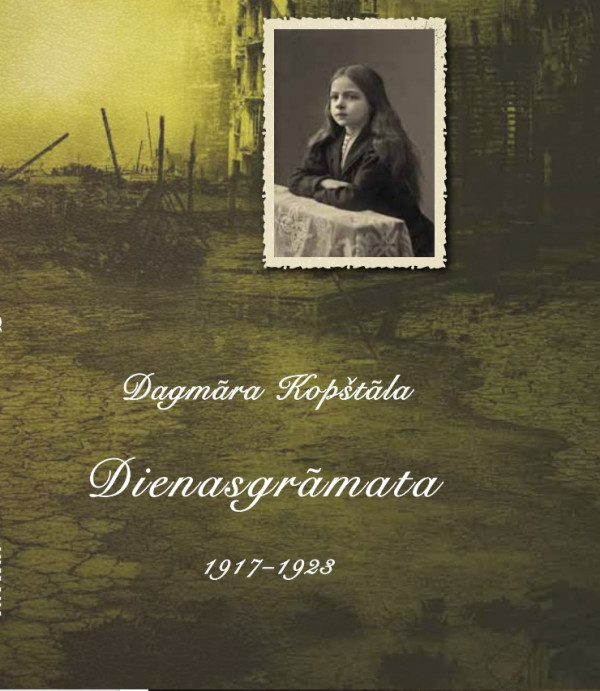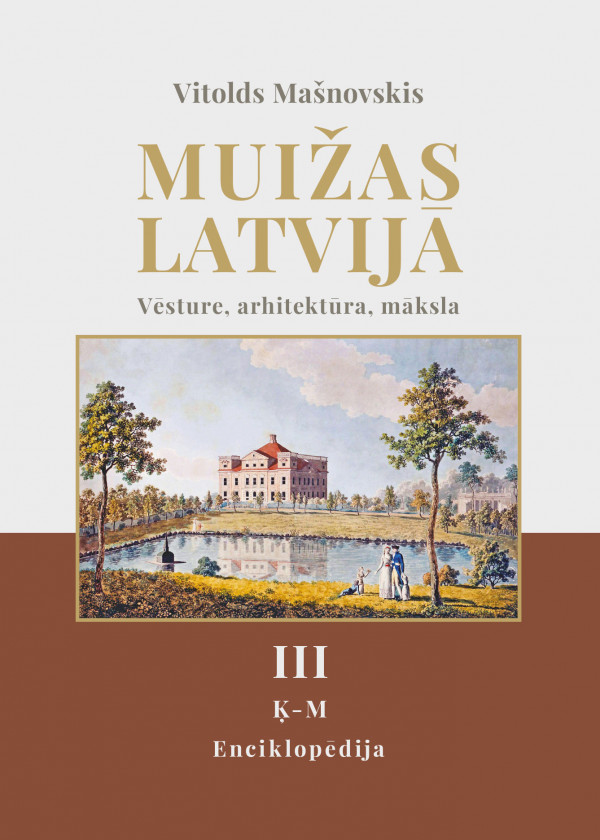LAS Vice President Ojārs Spārītis: Having knowledge is similar to sexual pleasure

"Most of my children - I call all these young people in their twenties and thirties my children - have realized that they have to learn like crazy to be people with knowledge, not just skills. Our education reform emphasizes skills, but forgets about knowledge, thus creating a society of people with a thinner layer of knowledge, so it is less able to think critically and therefore easier to manipulate,” Ojārs Spārītis, Vice President of the Latvian Academy of Sciences, comments on why knowledge is needed.
Continuation of our conversation (previous part: LAS Vice President Ojārs Spārītis: Our inventions remain "on paper")
As long as I have known you, you have always given lectures to students. What are you doing now - in the remote age?
Since October, I no longer give lectures for students in person. Until the announcement of total quarantine, students asked to keep face-to-face classes, and lectures took place until group classes were banned. The young people quickly realized that distance learning was not as complete as face-to-face lectures. In it often only dry information remains, with a slower effect of exposure and reception, due to the lack of dialogue and visual aids found only in real life, no eye contact, no body language or gestures. Hidden behind the gray "gravestones" of the Zoom conference, students lose motivation, but I - the "whip". One student is still half-asleep, another leaves the screen because the children are demanding breakfast, another goes to make coffee. And yet most of my children - I call all these young people in their twenties and thirties my children - have realized that they have to learn like crazy to be people with knowledge, not just skills. Our education reform emphasizes skills, but forgets about knowledge, thus creating a society of people with a thinner layer of knowledge, so it is less able to think critically and therefore easier to manipulate.
How could you - trying to bad-mouth our competency-based education... But seriously: classical education promoted the ability to think, compare, analyze. What does competency-based education contribute to? Probably some primitivism and manageability.
Since the time of Plato's Academy, or since the discussions and lectures led by the philosopher Marsilio Ficino for the chosen Florentine youth at the Medici family library in Florence, or even since the 19th-century gymnasiums and universities of Europe's growing industrial cities, which prepared not only for professional but also for universal knowledge - the individual was brought up as a personality who needed theater, museums, opera. Such a person was able to appreciate the modern landscaped urban environment, buildings, and parks.
It means only one thing: the more we allow the "barracks dictatorship" to standardize the individual, the more unified his demands for life become, and his modest needs can be met by surrogate culture, concrete apartment buildings, and other types of industrial environmental design that is functional but lacks aesthetics. Imagine a man who stays tucked in four walls for months or even years. There he will be born, live and grow up, and will probably walk the whole life cycle, from kindergarten to university - what will be his demands on the world around him, if his father is Google, his mother is Wikipedia, and his thoughts will be from Education and Welfare ministries? Such an individual will be easily "fed" with any information without distinction because such an adult student will lack critical and evaluative thinking, his threshold of needs will be minimal, but his social usefulness coefficient will be zero. He will be an individual unfit for life in society and thus socially dependent. You know, I would like to stop here, because social modeling issues should be dealt with by field-specific educators, philosophers, and sociologists, who seem to have succumbed to the passion of reading unread books during this period of prohibitions and quarantine and have stopped predicting the consequences of a pandemic. But in April, the German Academy of Sciences gave the government the task of modeling the social consequences in addition to the epidemiological and economic consequences, and it was a wise and nationally far-sighted approach that expressed concern for society.
With the distance learning method, it is not possible to give students everything they need to do independent work. What they find on the Internet alone is not enough. But the information society also has its benefits, because if a book is not in our repositories, we can access any library in the world by surfing the Internet. And all you have to do is maintain the students' curiosity because after the first year they start to realize that knowledge - it brings pleasure. Managing knowledge as your own thought machine is an intellectual enjoyment that is comparable to a person's organic pleasures, perhaps even similar to sexual pleasure. Until the young person understands the mechanism of emotional and mental stimulation of this sense of pleasure, he learns because "mom and dad told me to." And when I see that my students are rushing for knowledge and asking - give me more! - this is my greatest satisfaction. A knowledge-based society will not be driven by manipulative methods, it will be able to think critically.
My role as a long-time educator in this society is to be a kind of dissident: if the global educational process and various reforms degrade people and turn them into cogs in a robot society, I want to teach individuals and create personalities that will be quite different in their abilities and talents but will also be able to exist as autonomous personalities with their own value system. But this system of values must, of course, be embedded in them, strengthened so that it is not jeopardized by conjuncture or ephemeral trends. Admittedly, our lives in today's globalized world create too little value. And when it comes to European values, it is impossible to define them, because they are very blurred, vague, and often contradictory.
Well, European values in our country, Latvia, are regularly popularized and emphasized. Most recently, the Constitutional Court even revised the Constitution, bringing it closer to European values...
Today's healthy public consciousness is undermined by a myriad of provocatively fashionable trends that erode human integrity: gender and cultural issues, the issue of religious freedom, inconsistent education policies, the vague professional orientation of non-existent industries or the rapidly changing technological society, and many other risks. In order to develop and move forward, there must be something more than a competency-based person who is excellent at making beds in a hotel or is a virtuoso of changing summer tires on a car to winter tires, hoping to be able to do it successfully for life. Unfortunately, these people do not create covid vaccines, do not study the genetic nuances during times important to human life and health, nor do they solve theoretical tasks that are important for the development of basic sciences. Each member of society does their useful work according to their knowledge and qualifications. And those people who are creating a new vaccine architecture will certainly see further and think more complexly than those at the level of the competence society. And that is why the "constructors" of political mechanisms do not listen to the predictions of the higher intelligence but focus on the part of the society that thinks at a shorter distance or reacts emotionally. They are not interested in listening.
You said that nowadays - amazingly - more books are being read. Maybe the fragmentation of human consciousness has run into something more serious?

I would like to think so. Although bookstores are closed or partially closed, books can still be purchased online. Digital books have been around for a long time, but I prefer the real ones, which can be put on a shelf. The book I created just came out “Dagmāra Kopštāla. Diary. 1917-1923”. Barba Ekmane, the head of the collection department of the Latvian War Museum, commented on this, knowing the factology perfectly. A descendant of a Baltic German family - a fourteen-year-old girl describes in her diary the blood-curdling scenes of Latvia's history. The book describes the birth of our country when the Russian tsar's army leaves Riga and the German army attacks. But while there is neither, Latvians establish a state in the vacuum of power. After that, the Bolsheviks come, and in turn they are driven from Latvia by a Landeswehr together with Latvian army units founded from scratch. Estonians come to their aid... and the hopes of the Baltic Germans for the realization of a tsarist state formation or one derived from the emperor Wilhelm disappear.
In this mess of war and politics, the story of a teenage girl is written, which can be read and seen how a young person grows and matures and how the Latvian state is born in a bloody birth. At one time there is red terror in Riga, at one time - white, there are British warships in the port, but in the roadstead - French. And all this is seen by a child who should be playing with dolls, running through flowering meadows, and thinking about the prince of her dreams. But instead, Dagmāra Kopštāla and her family, who live in Mīlgrāvis, see the fallen every day, hear shots every day and experience the May 1, organized by the Bolsheviks, and listen to Pēteris Stučka's speech in Komunāru Square. All those to whom any power has given a weapon, from this and other civilian families in Riga need only food, alcohol, a place to sleep, and then to leave all this misery. Perhaps there is a certain resemblance to this story today: one or the other power does not break in our apartments, but confusion creates similar feelings in which no one knows from which side the danger is approaching, what decisions and if any will be made to prevent this.
An excellent book about Latvian manors has just been published: Vitolds Mašnovskis, “Manors in Latvia. History, architecture, art”.

Yes, this catalog of manor ensembles, their proud residential and farm buildings provides historically documentary evidence of the condition of these instruments supporting Latvia's economy 100 years ago and now. In Latvian society, it is no longer a matter of dispute - who built and who owned the manors. But the question is - what happens to the economy, politics, and culture in the turning stages of civilization. It is quite logical that the Germans, as the owners of the manors, used the money for their comfort: to be able to live in Latvia as in Europe. Although they did not travel to Italy, Germany, or France every year, there was a post office and an antique market, and the nobles - art collectors - ordered furniture, paintings, or other luxury items from European antiques and wholesalers. A month or a year later, when the new manor house was ready, the coveted treasure was in hand. It is no secret that German manors were filled with stylish furniture, sculptures, and paintings, which were looted in 1905 by Latvians instigated by revolutionary anarchists and then burned.
That is the saddest part. Especially that the 1905 revolution was romanticized and idealized...
That burning was the result of both obsession and political short-sightedness. The Russian Bolsheviks were probably a little smarter because they also knew how to burn and destroy, but they nationalized the property of the aristocracy and either sold or transferred the greatest art treasures to museums. The manor marauders who worked in Latvia and Estonia were often Latvian servants and stateless people who had become revolutionized in the factories in Moscow and St. Petersburg. Anarchist ideas flourished in the cradle of revolution, and in the so-called revolution of 1905-1906, the component of marauderism played a large role. And at this point, the morals of the anarchists and the Bolsheviks coincide: he who is in power is guilty, he who owns something is bad.
Tell us about the manor book.
It is based on the principle of an alphabetical catalog and consists of entries with some information identifying historical, genealogical reference, architectural and artistic value. This is the third volume, and at least two or three more are expected. All Latvian manors are registered in the catalog. You can open any page and you will understand what the past era means. It - like the ancient Troy, Greece, or Egypt - is covered with the sand of the desert of oblivion... Here is an example: near Saldus in Soviet times there was an army training ground in Zvārde and both Krekliņu manor and church were "heroically" bombarded during training flights. After all, who in the occupied land might have any interest in the "fascist" manor?
It is a sad book with an emotionally sad message about a passing civilization that carries into oblivion a certain cultural quality, valued as a cultural monument by the state, but only the last few of the cultural Mohicans try to save some mansion to house a hotel, restaurant, conference and party rooms between the crumbling farm buildings. But these new owners will never restore the manor as an economic structure. At best, one of the buildings will be a hotel with 20 rooms, but the other buildings in the complex will simply continue to collapse. And nothing can be done there. The situation is similar in Germany, Poland, and elsewhere.
However, it must be understood that Latvia's industrial history, food production, and the processing of local resources were born in manors. The manor complex was run by an economically educated manager who knew how to manage - how much money needed to be invested in a distillery, how much - in a paper factory, and if we melt Riežupe sand - we will have bottles, we can sell glass, have even more money to build schools and hospitals, build railways and build factories.
It could be seen as a boom. Contrary to what is happening now...
In some manors, there are municipal museums. In many, there were schools during the Soviet era. Currently, with the liquidation of schools in the countryside, the most luxurious buildings of the manors are left without an owner.
A second death, in a way.
Yes. There is no one to invest money in those buildings. Even today's young farmer - a large farmer who owns two, three, or five thousand hectares of land, does not need the infrastructure of the manor, because he sells grain! He will not build a church, he does not need a doctorate or a school in the countryside - he does not need the infrastructure that Baron Līvens, for example, once built in Smiltene. Therefore, this book is an emotional documentation of the decline of a passing culture. It's good that this book isn't banned yet...
Why would it be banned?
Because it can raise critical questions about our economic capacity, public management skills, and economy in general.
Let's go back a bit to the past. Back then, when the German nobles had earned a lot in their manor manufactories - glass and paper factories, mills, distilleries, agriculture, and forestry, did they go to Riga?
Of course. This industrial upheaval was first ensured by the encouragement of the Governor of Riga and Vidzeme, Filippo Paulucci, to Tsar Alexander I to cancel the serfage, and by releasing the farmers and selling them part of the manor land, money was generated for building factories in Riga. Who created Art Nouveau in Riga? Not farmers. They stayed in the countryside to take care of "their place, their corner of the earth," but for this money, their children were educated into economists in Tartu and St. Petersburg. Local capital, together with the international one, created the economic basis of Riga, while the stock exchange, port, and railway ensured both the supply of resources and the export of products, moreover, at the highest stock exchange prices. Foreign engineers helped build metal foundries, ship and mechanical engineering factories, food and textile factories in Riga, and medieval Riga became too narrow for this growing business.
The minority and native students educated at the Riga Polytechnic Institute became the engineering intelligentsia of Latvia, which established the economic basis in the then territory of Latvia, which was not yet the state of Latvia. However, the evacuation of Baltic companies to Russia and World War I left the new Latvian state a legacy of a ruined and degraded industrial landscape that had barely managed to recover and prosper in the 20 years of independence when it was again cut off by the war and three occupations. Taking all this into account, it can be concluded that we are still young in our country. The state, economy, politics, and art are new to us. Therefore, fragile and vulnerable. And that is why we need smart, knowledgeable people and science-based education.
